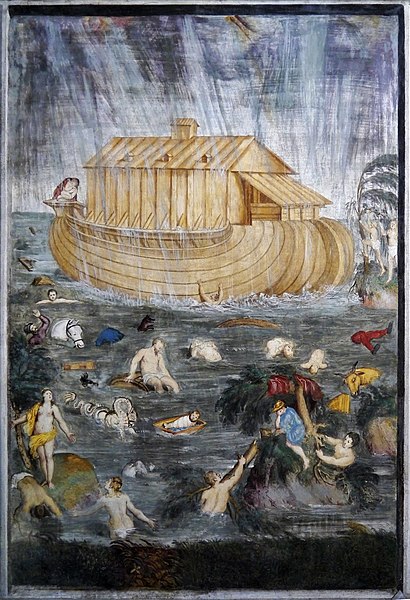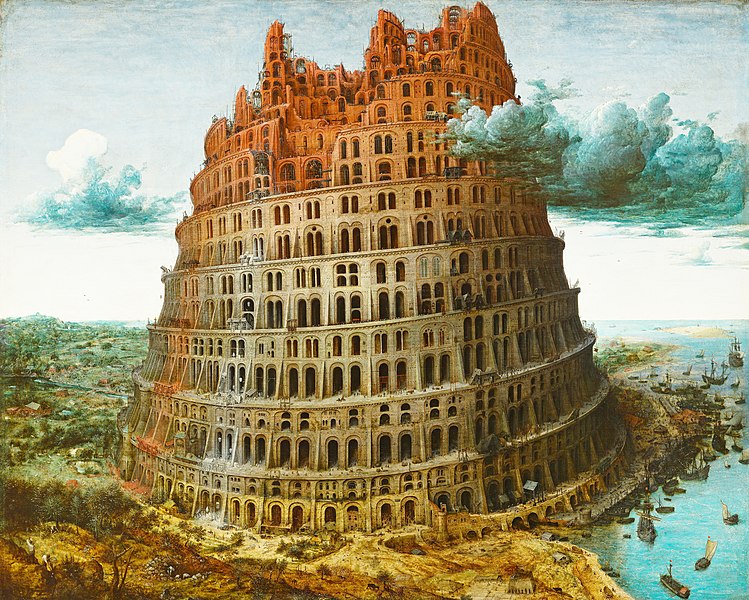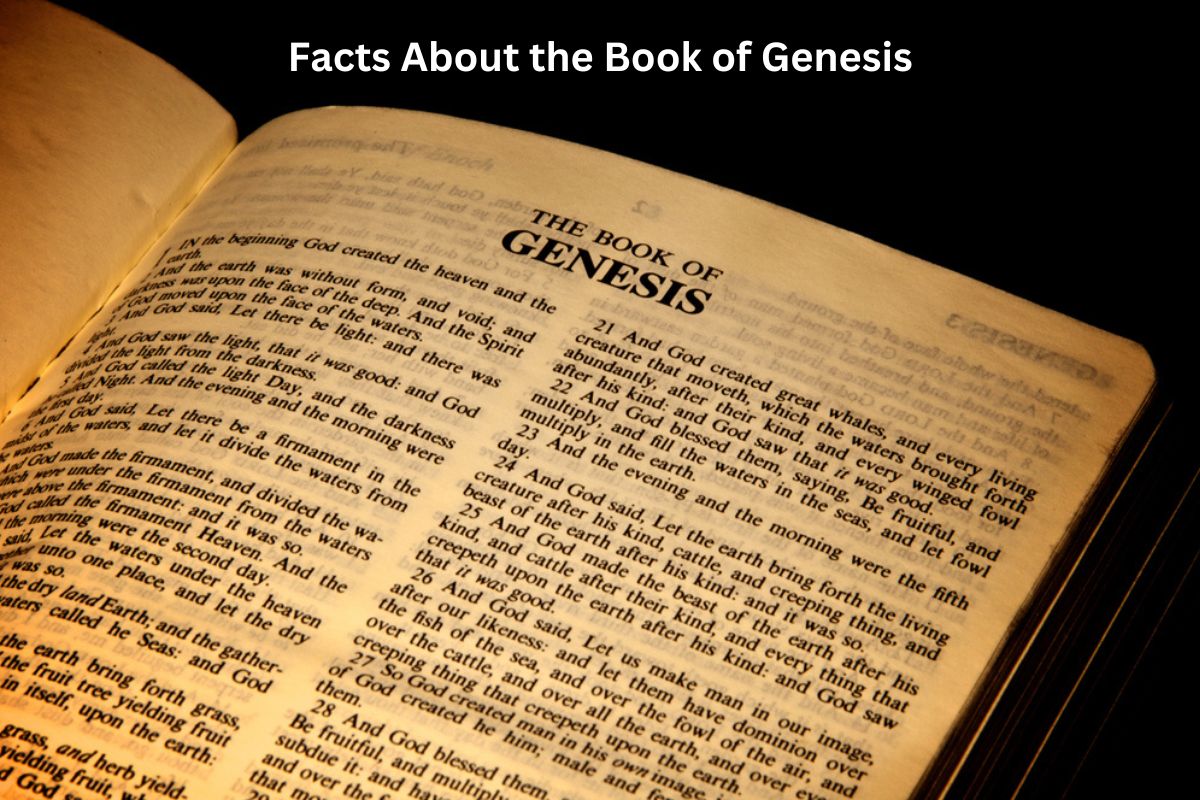The Book of Genesis, the first book of both the Hebrew Bible and the Christian Old Testament, is a foundational text that sets the stage for the religious and historical narrative of these traditions.
It is traditionally attributed to Moses and explores essential themes such as creation, the origins of humanity, divine covenants, and the emergence of key biblical figures like Abraham, Isaac, Jacob, and Joseph.
Genesis contains some of the most iconic stories in the Judeo-Christian tradition, including the creation account, Noah’s Ark, the covenant with Abraham, and the beloved tale of Joseph and his coat of many colors.
Its narratives and theological themes continue to be a source of study, inspiration, and cultural significance to this day.
Book of Genesis Facts
1. First book of the Bible
Genesis is the opening book of both the Hebrew Bible (known as the Tanakh in Judaism) and the Christian Old Testament. It serves as the foundational text for these religious traditions.
Also Read: Facts About St Francis of Assisi
The word “Genesis” is derived from the Greek word “geneseos,” which means “origin” or “beginning.” This is fitting because the book primarily deals with the origins of the world, humanity, and the Israelite people.

2. Traditionally attributed to Moses
The traditional attribution of Genesis to Moses is based on ancient Jewish and Christian beliefs. According to tradition, Moses, the great Hebrew leader and lawgiver, is considered the author of the first five books of the Bible, collectively known as the Torah or Pentateuch, of which Genesis is the first.
Moses is said to have written Genesis during the Israelites’ wilderness journey, serving as a historical and religious guide for the people.
Also Read: Moses Facts
However, modern scholarship has raised questions about the single authorship of the Pentateuch, including Genesis. The prevailing scholarly view, known as the Documentary Hypothesis, suggests that multiple authors and editors contributed to these books over many centuries.
3. Contains the creation story
The Book of Genesis opens with the well-known creation narrative found in Genesis 1 and 2. In these chapters, God creates the universe, the Earth, and all living creatures in six days.
This creation account is characterized by the phrase “And God said, ‘Let there be…'” which is repeated as various elements of the world are formed. On the seventh day, God rests, establishing the concept of the Sabbath.
Also Read: Books of the Bible Timeline
The creation story in Genesis has had a profound influence on Judeo-Christian theology and cosmology, and it has been a subject of interpretation and debate for millennia. It introduces fundamental concepts like divine omnipotence, order, and the inherent goodness of creation.
4. Tells the story of Noah’s Ark and the Great Flood
Genesis contains the story of Noah and the Great Flood in chapters 6 to 9. According to the narrative, God, seeing the wickedness of humanity, decides to send a catastrophic flood to cleanse the Earth.
God instructs Noah, a righteous man, to build an ark to save himself, his family, and pairs of every kind of animal. This ark serves as a means of salvation and preservation of life during the deluge.
The story of Noah’s Ark emphasizes themes of divine judgment, obedience to God’s commands, and the concept of a covenant, as God promises not to flood the Earth in the same way again, symbolized by the rainbow.

5. Introduces the patriarch Abraham and the covenant with God
Abraham, introduced in Genesis chapter 12, is a central figure in the book. God makes a covenant with him, promising to make him the father of a great nation and bless all the families of the Earth through his descendants.
Abraham is often considered the father of faith in monotheistic traditions, as he demonstrates unwavering faith in God’s promises. The covenant with Abraham underscores the idea of God’s chosen people and the importance of faith in the biblical narrative.
This covenant involves several key events, including the promise of a son, the birth of Isaac, and the testing of Abraham’s faith through the command to sacrifice Isaac.
6. Follows the generations of Abraham’s descendants, including Isaac and Jacob
The book of Genesis follows the generations of Abraham’s descendants through his son Isaac and grandson Jacob (later renamed Israel). Isaac’s birth is miraculous, as he is born to the elderly Sarah and the aged Abraham, fulfilling God’s promise.
Jacob, whose name means “heel-catcher” or “deceiver,” is known for his role in securing the birthright and blessing of the firstborn from his brother Esau. He later has a transformative encounter with God and is given the name Israel, becoming the patriarch of the 12 tribes of Israel.
The story of Jacob and his sons, including Joseph, forms a significant portion of Genesis and highlights themes of sibling rivalry, family dynamics, and divine providence.
7. Famous story of Joseph and his coat of many colors
The story of Joseph is one of the most famous and beloved narratives in Genesis. Joseph is the favored son of Jacob and is given a special coat of many colors by his father. This coat symbolizes his father’s favoritism and sets him apart from his brothers.
Joseph’s brothers, jealous of his status and his dreams of future greatness, sell him into slavery and deceive their father into believing he is dead.
Joseph’s journey takes him to Egypt, where he eventually rises to a position of power in Pharaoh’s court. Through his wisdom and ability to interpret dreams, he helps Egypt prepare for a severe famine.
The story of Joseph illustrates themes of forgiveness, reconciliation, and divine providence, as Joseph forgives his brothers and the family is eventually reunited.

8. Includes the Tower of Babel narrative
The Tower of Babel narrative, found in Genesis 11, tells the story of humanity’s attempt to build a tower that reaches the heavens. The people of the time sought to make a name for themselves and prevent themselves from being scattered across the Earth.
God intervenes by confusing their languages, leading to the dispersion of people across the world and the origin of different languages and cultures.
The story highlights themes of human pride and the consequences of rebellion against God’s will.
9. Contains detailed genealogies
Genesis includes detailed genealogies that trace the lineage of various biblical figures. These genealogies serve both historical and theological purposes, linking generations and establishing connections between key figures in the narrative.
Notable genealogies include the list of descendants from Adam to Noah, as well as the lineage of Abraham and his descendants, emphasizing the continuity of God’s promises.
10. Themes of faith, divine promise, and God’s chosen people.
Throughout the Book of Genesis, recurring themes include faith in God’s promises and the concept of divine covenant. God makes specific promises to individuals like Abraham and their descendants, and these promises are central to the overall narrative.
The book explores the idea of God’s chosen people and the role of faith in carrying out God’s plan. Abraham’s unwavering faith in God’s covenant and Joseph’s trust in God’s providence are exemplars of this theme.
Genesis sets the theological foundation for the rest of the Bible, introducing concepts such as monotheism, the nature of God, and the relationship between humanity and the divine.
